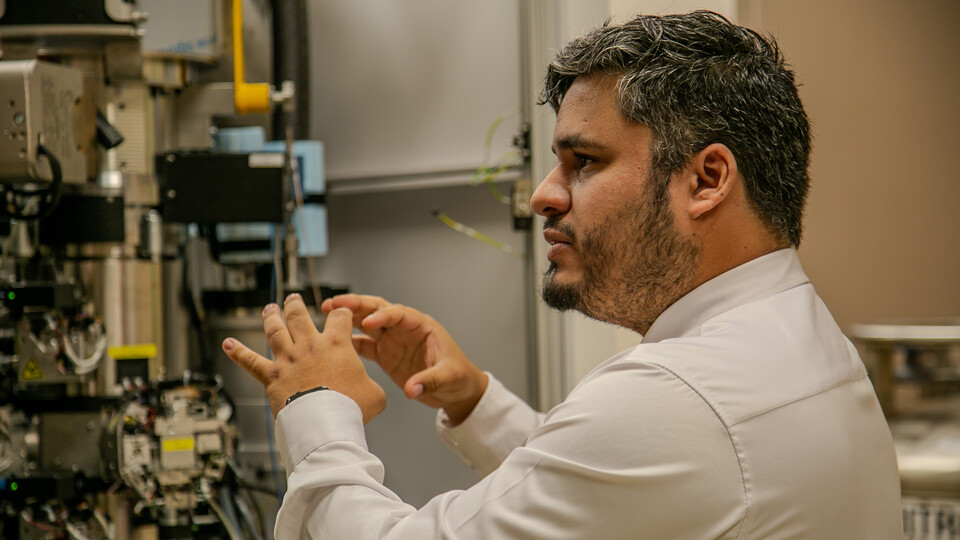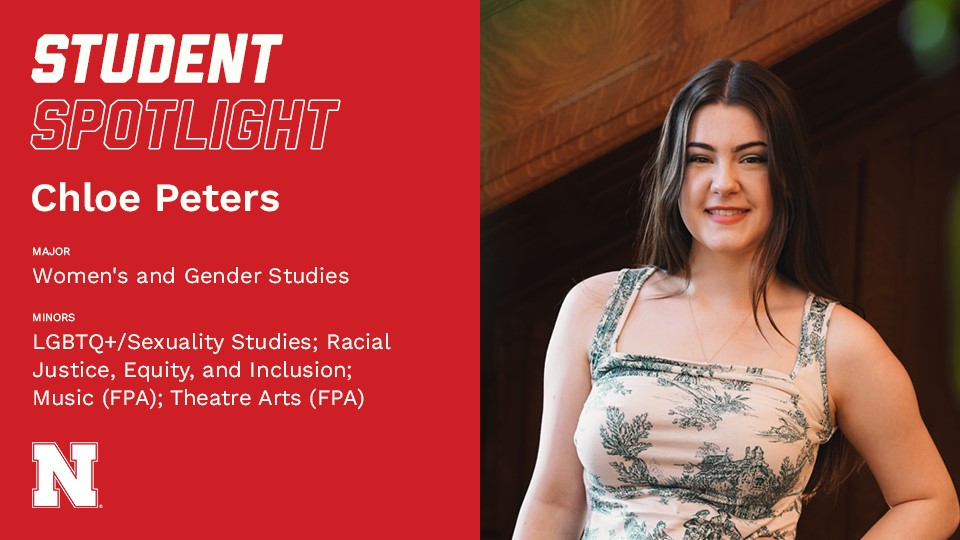
Erin Bertram, Grace Brown, Linda Garcia Merchant, and Alexis Swendener have been named the University Libraries' 2017 Digital Scholarship Incubator Fellows.
The Digital Scholarship Incubator is a competitive fellowship program that promotes student-led digital research and scholarship over 12 weeks each summer. During the fellowship period, students commit to developing a contribution to humanities, social science, or related scholarship that depends on digital methodologies for research and/or dissemination.
While concentrating on their own work, DSI Fellows also support the research of the other Incubator Fellows through conversation, critical engagement, and knowledge exchange. Fellows must be willing to actively engage with others working in different disciplinary areas and fields and with a range of methodologies. Fellows receive a stipend to support them in their research, one-on-one and group consultations with a range of Nebraska faculty and staff in the Libraries and beyond, co-working space, and other professional development opportunities.
---
Bertram is a PhD candidate in Creative Writing, specializing in Women's and Gender Studies. The recipient of Karen Dunning Creative Activity Awards in 2016 and 2017, he is the author of twelve chapbooks of poetry and hybrid texts, including the forthcoming Relief Map, a winner of C&R Press's 2016 Summer Tide Pool Chapbook Competition. They are particularly interested in "gray areas" surrounding both gender and genre.
As an Incubator Fellow, Erin will research and create a digital extension to their creative dissertation, a hybrid genre memoir that explores how their mother's experience with breast cancer and their own non-binary gender identity call into question, in their own unique and sometimes overlapping ways, what it means to be, or not to be, a woman.
Erin's goal is to amplify readers' experience of their writing, via digital means, beyond the delineation that front and back book covers allow, ultimately nuancing understandings of illness, queerness, identity, privilege/marginalization, empathy, and gender.
---
Brown is a graduate student from Denver, Colorado pursuing a Master's degree in history. Her research focus is twentieth century American history, drug policy, and race and ethnicity. As part of her graduate program she is pursuing a certificate in Digital Humanities and a specialization in Ethnic Studies.
As an Incubator Fellow, Grace will pursue a digital mapping project of Omaha, Nebraska. In 1984, President Ronald Reagan established Drug Free Zones nationally as a way to double or triple the sentences for drug dealers who were selling to minors. In urban areas, these zones tend to overlap, and cover large expanses of the city.
For this project, she will map these drug free zones in Omaha, and examine the spatial politics of living within a drug free zone. What happens when your home is a drug free zone? What happens when your entire neighborhood is a drug free zone? She will also include arrest data from Omaha during this time that will allow her to analyze who was targeted for these increased penalties, and why. In an extremely segregated city like Omaha, these spatial politics are even more important to understand.
Her research falls into a larger trend in history and the humanities of interrogating issues of mass incarceration, issues within the criminal justice system, and racialized selective enforcement of supposedly "colorblind" laws.
---
Merchant is a doctoral student specializing in Chicana/Latina Literature Studies and Digital Humanities. Her work focuses on the restoration and reconstruction of the counter narrative as an aid in rehabilitating the historical discourse of resistance and social movement.
As an Incubator Fellow, Linda will develop a research hub entitled, Chicana Diasporic: The Chicana Caucus of the NWPC. A Nomadic Journey of the Activist Exiled. The Chicana Caucus was a group of Chicana/Latina feminists, organized and active from 1973-1979 as a special interest caucus of a national political organization of second wave white feminists, the National Women's Political Caucus (NWPC)—the political action arm of the second wave women's movement of the 1960s and 70s.
Presented in a museum collection format, Chicana Diasporic will include documents, photographs, film clips, and an introductory narrative that defines the Caucus' history, structure and purpose, and their national impact on second wave feminism. Materials provided for Chicana Diasporic are the result of an eight-year recovery project, the Chicana Por Mi Raza Digital Memory Collective and will be the first scholarly product created from the digital repository.
---
Swendener is a doctoral candidate in the Department of Sociology. Her research focuses on family dynamics and sources of social inequality within various and often understudied social contexts.
As an Incubator Fellow, Alexis will develop Engaging in Public Sociology and Digital Scholarship: Sharing Research on Farm Families and Health. The aim of this project is to distribute social scientific knowledge by creating a public website to share the results of a larger research project. The website will share findings from research utilizing both survey and interview data to examine how men and women on farms and ranches negotiate work and family roles with implications for health and relationship happiness.
Exploring these areas among farm families helps clarify work- and family-related pathways to health and expand theoretical understandings and scholarship in these domains. In addition, several potential broader impacts serve as motivation for this project. This project focuses on broadening science communication to wider audiences and on highlighting research on understudied rural and farm populations, which is particularly relevant to Nebraskans and as a member of a public, land-grant institution. By sharing research on farm families and health, this project could help policy makers identify both sources of risk and resiliency in health among rural families.
---
Update provided by Liz Lorang.

